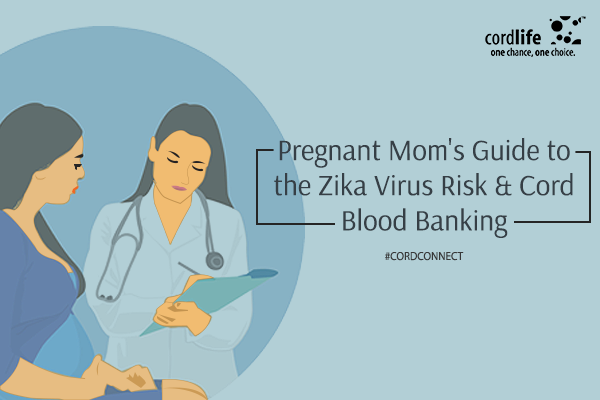Table of Contents
You might be thinking why Zika virus is a big deal for you, if you are an expectant mother?
Well, before that let’s just talk about what it is and how it spreads. Zika virus is mainly spread by mosquito bites and sexual transmission. The virus does not cause major harm to adults. But it greatly affects babies, if the mother contracts the virus during pregnancy.
So, coming back to the question, yes, Zika virus causes severe birth defects in newborn babies, born of Zika infected mothers. These babies develop microcephaly, a condition in which they are born with a significantly smaller brain, compared to other babies.
If all these have made you a bit worried and uncomfortable, here is some good news to make you feel a little safer. Cord blood banking! Yes, by securing a cord blood unit, you can be prepared for the future, no matter what.
However, here are some rules that pregnant parents should know about Zika infection and cord blood banking, if they are willing to donate their cord blood. The Food and Drug Administration (FDA) and the Cord Blood Association issued a guideline to protect cord blood units from potential Zika virus transmission on August 26, 2016. The guidelines are as mentioned below:
- The regulations are applicable to anyone who would collect and store blood components in private and public cord blood banks.
- All blood donations are recommended to be screened for the infection.
- If an expectant mother, willing to donate her baby’s cord blood unit, is found to be infected with Zika virus at any point of her pregnancy, her registration will be ineligible.
- She will be ineligible to donate her cord blood unit, if she stays in an active Zika cluster or travels to any such area during her pregnancy.
- If she had sex at any point of her pregnancy with a Zika infected male in the past six months, she will also be considered ineligible. The reason being, Zika virus can also be sexually transmitted.
Now you must be thinking, should you store your baby’s cord blood, if you are infected with Zika virus? The answer is yes. No matter if your baby is at risk of Zika virus or not, storing a cord blood unit will ensure a secure future. Moreover, all these guidelines and regulations stand for a fact that these stem cells are significantly rare. So, storing a cord blood unit and getting a bunch of life-saving stem cells is always a better option than having nothing in hand, when you need a transplant in the future. And just as mentioned earlier, Zika virus does not pose any major risk to male adults and non-pregnant women.
Cord blood banks take an extra screening process to check for Zika virus infection in order to eliminate any risk. After the screening process, if you are found to be at risk, your cord blood will still be collected and stored, so that any future illness of your family members can be treated. The processing and storing processes ensure that no cross contamination takes place.
